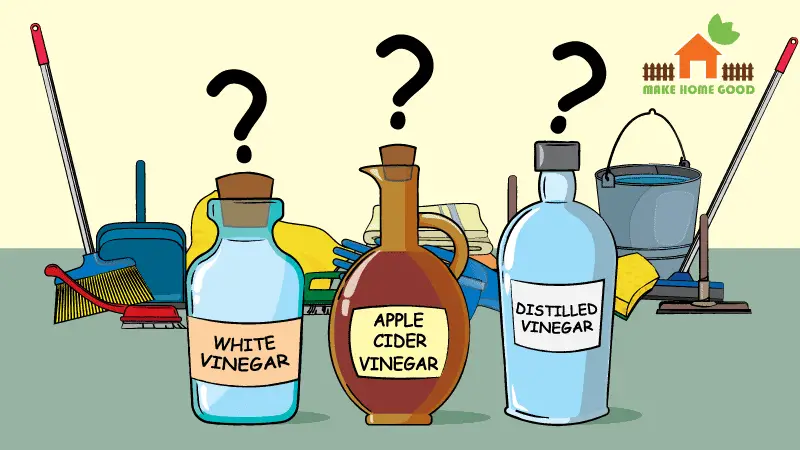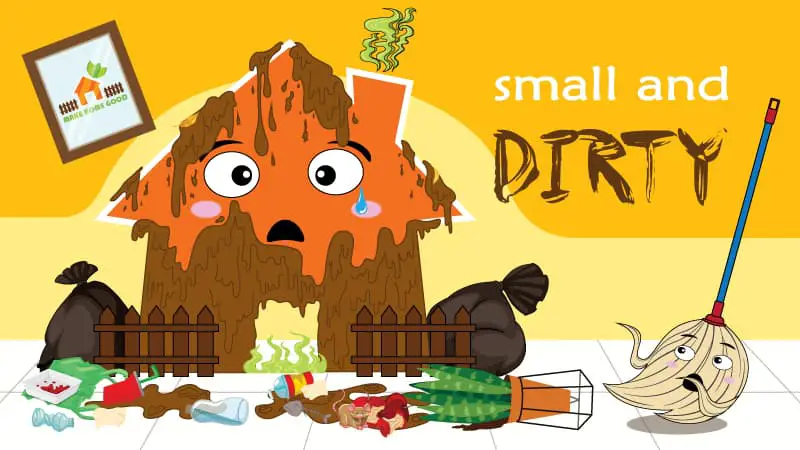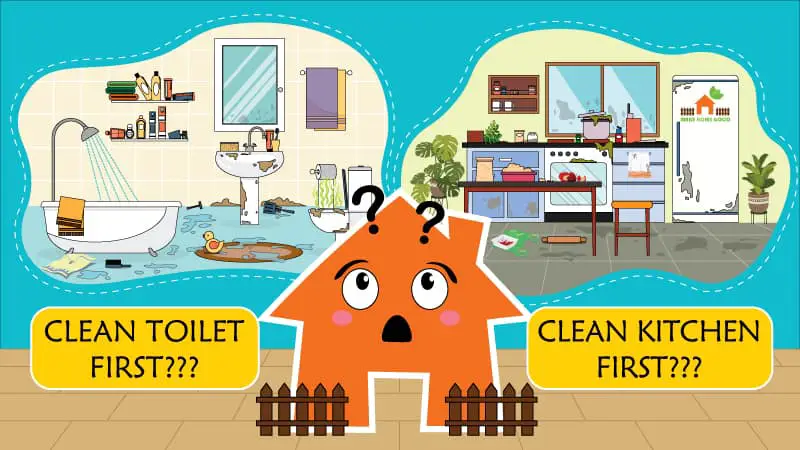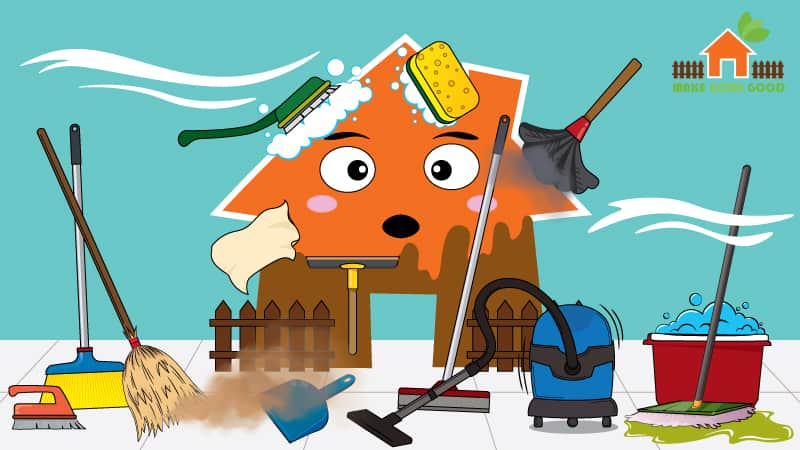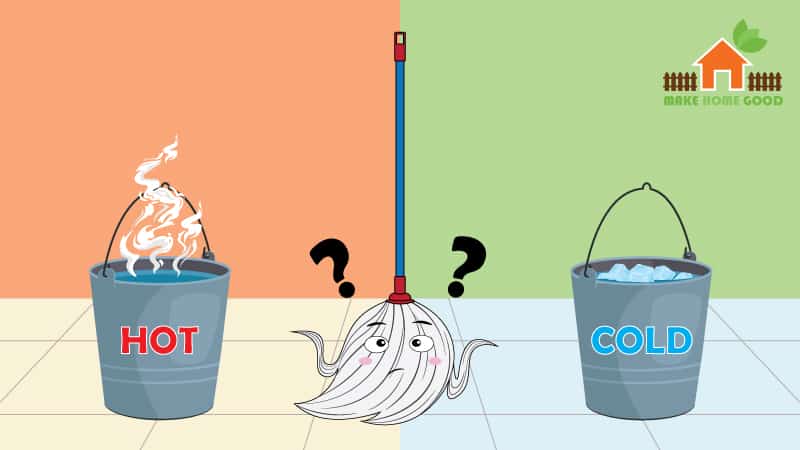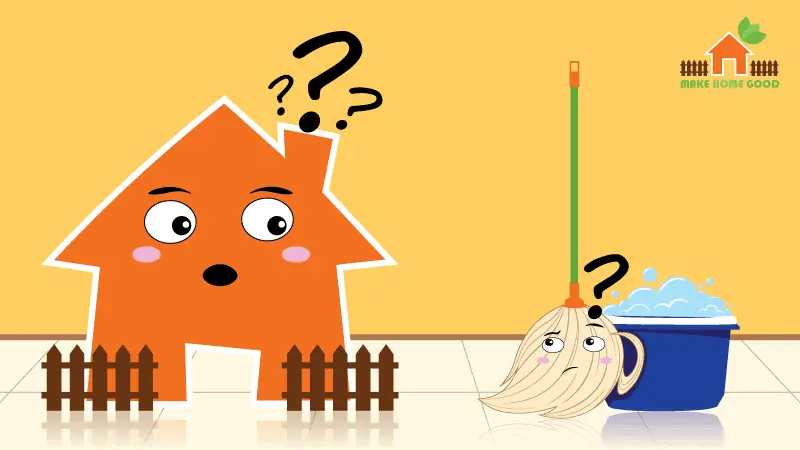I use vinegar for a variety of purposes. I use it to clean my clothes, clean our kitchen and bathroom, and as a mold spray. Yes, we used vinegar to minimize mold from one of the homes we stayed in while traveling.
If you’re wondering what type of vinegar to use for home cleaning, my answer is white or distilled vinegar, which I believe is the best for use at home. It is safe to use on most surfaces it contains no artificial coloring like other types of vinegars.
In the following sections, we’ll go over other types of vinegar, their uses, and how to choose the best vinegar for home cleaning.
Table of contents
- What is the difference between this two type of vinegar (White and Distilled vinegar)?
- What makes vinegar very useful for cleaning?
- Can you mix other cleaning products with vinegar?
- Why is distilled vinegar the best for cleaning?
- What is the acidity level of distilled vinegar?
- What not to clean with vinegar?
- Is vinegar non-toxic?
- How to select the right type of vinegar for home cleaning?
- What are the most common types of vinegar?
What is the difference between this two type of vinegar (White and Distilled vinegar)?
If you don’t know yet, white vinegar is also called spirit vinegar and distilled vinegar is also referred to as virgin vinegar.
White vinegar is usually produced from sugar cane while Distilled vinegar can be made from almost all types of vinegars like apple cider, coconut, malt, raisins, dates and many others.
The white vinegar can also be made by combining acetic acid with water
You can also read full article from sweetlivingmagazine.co.nz here.
While the virgin vinegar is distilled from ethanol.
So, what is ethanol?
Ethanol (also called ethyl alcohol, grain alcohol, drinking alcohol, or simply alcohol) is an organic chemical compound…
It’s naturally produced by fermentation of sugars by yeasts or via petrochemical processes such as ethylene hydration.
Source: https://en.wikipedia.org/
So, if you have white vinegar or distilled vinegar at home, they are excellent cleaning agents.. 🙂
What makes vinegar very useful for cleaning?
Why do sometimes we find our moms, or wife use vinegar for cleaning our kitchen? Does it look weird, cause we use it for cooking as well! 🙂
Did you know that vinegar is a very useful cleaning agent because it is acidic and can therefore break down dirt, grime, and other buildups.
And, vinegar is relatively inexpensive and easy to find, making it a great option for budget-conscious consumers! I prefer to clean with natural or organic cleaning agents rather than the chemicals advertised (just our own personal thing).
Can you mix other cleaning products with vinegar?
In case you’d want a more stronger cleaning mixture, you’d probably think of mixing vinegar with other agents, right?
I’d say you need to be very careful when doing this because vinegar has a very strong acidity level, and mixing them unknowingly what the reactions might be is hazardous.
However, I searched online and I created a list of products that you can mix with vinegar:
| Name of item | Ideal mixture amount |
| Salt | 2 tablespoons of vinegar |
| Water | 1 part vinegar |
| Baking soda | 2 tablespoons of vinegar |
| Essential oils | 1 cup of vinegar |
| Lemon juice | 1 part vinegar |
| Dish soap | 1/4 cup of white vinegar |
Why is distilled vinegar the best for cleaning?
Distilled vinegar is the best for cleaning because it is a strong acid that can dissolve dirt, grime, and stains. It is also effective at killing mold and mildew. The best part is that, unlike other vinegar, it will not discolor the surface where you applied it because it does not contain any coloring agents.
Because of the acidity level of vinegar, it can clean and get rid of surface dirts at home. It is truly one of the best home cleaning products that is mostly natural and free of chemicals.
You may also want to read about how to clean your home naturally.
What is the acidity level of distilled vinegar?
If you’re wondering what the acidity level of distilled vinegar is, it’s around 5% with a pH of 2.5. As a result, it is one of the best household cleaning solutions on the market today.
And one of our most loved cooking items at home! 🙂
What not to clean with vinegar?
Vinegar is a great cleaning agent, but there are some things you should never clean with vinegar. You need to keep in mind that vinegar is acidic and can damage some surfaces at your home. So, when cleaning with vinegar, be sure to use it on a non-porous surface like tiles.
Regarding safety precautions, vinegar can react with certain cleaning chemicals and create dangerous fumes.
You may not notice it right away, but this can lead to fire hazards. I’d been exposed to fumes before, but not at home; it happened in our laboratory, where I used to work, and it caused a fire on our equipment.
So, when combining vinegar and cleaning chemicals, proceed with caution or you can check the table I made above regarding mixing vinegars with other cleaning products.
Also see the six things you should avoid mixing with vinegar (always follow precaution):
- Hydrogen peroxide
- Bleach
- Castile soap
- Pesticides
- Drain Declogger
- Ammonia
Also if you want to use it to spray molds around your home, it is advise to dilute it with water, you need to be cautious in doing this and best to consult with molds experts as well.
You can check out this article about cleaning mold with vinegar.
Is vinegar non-toxic?
Yes, vinegar is non-toxic. Especially the white vinegar because It is made from water and acetic acid, and has a pH of 2.5.
Generally vinegar is safe to use around children and pets, and can be used to clean surfaces in the home (with precaution of course).
How to select the right type of vinegar for home cleaning?
There are many types of vinegar available on the market, and it can be confusing to know which one to use for home cleaning.
White vinegar is the most versatile and can be used for a variety of tasks, from cleaning windows to removing stains.
For tougher jobs, like cleaning ovens or removing mold, you’ll need a stronger vinegar, like apple cider vinegar. When using vinegar for cleaning, always be sure to dilute it with water, as undiluted vinegar can damage surfaces.
What are the most common types of vinegar?
As you now know there are many types of vinegar, and below are some of the most common types of vinegars that you may encounter.
- Apple cider vinegar is made from fermented apples and has a slightly sweet taste.
- White vinegar is made from distilled alcohol and has a strong, sharp flavor.
- Red wine vinegar is made from red wine and has a tart, acidic flavor.
- Balsamic vinegar is made from a reduction of cooked white grapes.

